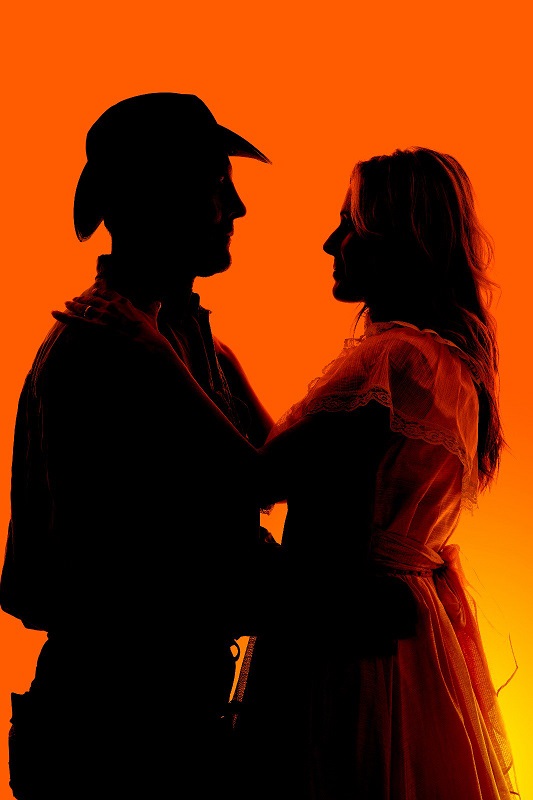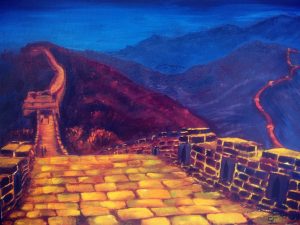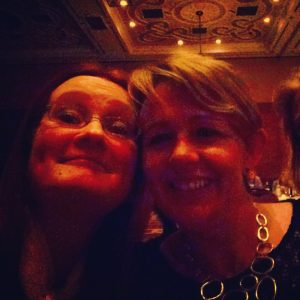Everyone claims to have some Irish Ancestry, don’t they? Being 25% Irish, I’m always intrigued by stories featuring a bit of Irish authenticity. So I was so thrilled to be invited to join fellow Scot Eilidh Lawrence’s tour for her fabulous short story, Hunger, set on the Oregon Trail.

First of all, Eilidh, welcome to my blog and thanks for being here.
EL: Thank you so much for sharing my story Emily, and for giving me your time! I’m very glad to be here.
Can you tell everyone a little about yourself?
EL: I am an aspiring romance author, songwriter and contributor to the Pink Heart Society (PHS) e-zine. I was a co-founder of #UKRomChat, a weekly live Twitter chat for romance writers, and co-hosted the chat for its first year. In 2018 I finalled in the TARA and WisRWA Fab Five romance writing contests. I’m a former prosecutor and hold a Diploma in Forensic Medical Sciences, but, no, I would not rather be writing crime! I’m all about happy-ever-afters.
Yes, I love a happy ever after, too, even if the characters are put through the mill along the way! And I love all the discussions on #UKRomChat about romance and happy endings! So, onto your story: what appealed to you about the setting?
EL: I wrote the story in response to the prompt of ‘Western Expansion.’ I like having a starting point. I’d never heard the term before and I knew very little about American history, so it seemed like a chance to learn more. I love reading historical fiction and a historical setting appealed to me. The Oregon Trail was an incredibly hard journey and travelers didn’t always survive it, but people undertook it seeking a new start. That felt very powerful. More specifically, a campfire is an intimate setting.
Oooh yes, I love that sense of pioneering and adventure! And I’ve found writing historical fiction is a great chance to learn more through research. How did you go about researching for Hunger?
EL: I was starting pretty much from scratch, so I began with some very basic online research. I narrowed my focus to The Oregon Trail after watching Ken Burn’s: The West, a brilliant documentary series. That’s also where I learned about later in life marriages between Irish Great Hunger survivors. It was a passing reference but gave me the spark of an idea. After that my research had two strands: The Oregon Trail and Irish immigration to America. Everything I learnt fed into the deep sadness in Órlaith and Liam. I got my facts from educational online resources and I watched Westerns set on the Oregon Trail (taking them with a pinch of salt, of course) to add flavour, for example that’s where the reference to dust coating Órlaith’s clothes came from.
I love all those authentic little touches! Often a lot of research is put into a single line of detail in a story. Are you tempted to use the research you’ve already done to expand the story into a novella or novel? I love the interaction between Órlaith and Liam!
EL: Thank you! So true. You’re not the first person to ask that question. I wrote Hunger as a piece of flash fiction. It was intended to be a snapshot. But people keep asking for more… It’s lovely to get that reaction! I have no specific plans to continue Órlaith and Liam’s story at the moment but maybe there will come a point when I sit down with them and ask them to tell me what happens next. Because I don’t know!
I love that, when characters speak to an author! I definitely want to see more of Órlaith and Liam. What else are you working on now?
EL: I’m working on my first novel, an Amish Romance which came out of the Harlequin Love Inspired Amish Blitz. It’s been slow progress, but I’ve taken encouragement from placing in the Fab Five and TARA RWA chapter contests along the way. I’ll be submitting it soon to the Romantic Novelists’ Association New Writers’ Scheme. I’ve also started a Scottish contemporary romance with an #ownvoices aspect. The hero lives with an anxiety disorder. It’s really important to me that people living with mental health conditions are accurately represented in fiction, through well-rounded characters who have their owns stories that don’t start and end with their experience of those conditions.
Yes, that’s so important! Thanks, again, Eilidh, for sharing your story.
And now, for the story itself! “Hunger” by Eilidh Lawrence (aka Laura McKendrick) was a runner-up in the Women’s Weekly Short Story Competition, in association with Mills & Boon. Read on and be enthralled…

The Oregon Trail, near Fort Hall, Idaho, 1849
“Your cooking smells of home.”
The unfamiliar voice drew Órlaith’s attention from the pot where she stewed elk over an open fire. It took a moment for her to realise the man had spoken in Gaedhilge. Shadows danced across his gaunt face. A face she didn’t know.
“I’m Liam.” He bent closer, offering his hand. “From Donegal.” His fingers were long, his grip firm. His dark hair contrasted with his pale skin.
“You’ve the charm of an Irishman, to be sure,” she replied in English. They were in America now. “But we both know half the women in this camp are stewing game tonight. It was a good day for the hunting.”
He laughed, a sound she didn’t hear so much these days.
“Well, there’s none cooking it as well as you.”
A charmer indeed.
She returned her focus to the stew. The scent of wild garlic mingled with the ever-present woody, smoky smell that had clung to her hair and dust-coated clothes for months now.
“It really does smell good.” He hesitated. “Can I buy some?”
She studied him. “I’ve not seen you before.”
“No. We joined you today. My boy was exhausted. We rested, the two of us. Our party went on.” He shrugged. “That’s how it goes.”
“Your boy?” There were so many children on this wretched journey. “How old is he?”
“Danny’s but four years.”
“You both must eat with us. As our guests. No charge.”
“Us?”
“My brother Ruaidhrí and I.” She paused. “We’re all that’s left that were still in Ireland. And there’s my babby, Hope. She’s asleep.” Órlaith nodded towards their canvas-covered prairie schooner. The wagon was the closest thing to home little Hope had experienced so far in her hard, infant life.
“I’m sorry.” A respectful silence hung in the air. The clicking of the cicadas seemed clearer. Then he smiled. “Hope’s a pretty name.”
“Will you sit?” she invited, and he did. “I always wanted a baby girl called Caoimhe. But then I had Hope on the crossing. A babby born on the Western Ocean. Who would’ve thought? We were bound for America. Caoimhe seemed too…”
“Irish.”
A moment of understanding passed between them.
“Yes.”
“And what do they call you?”
“Órlaith.”
“Was it The Hunger took your people, Órlaith?”
“Disease.”
The fire crackled.
“I see.” A horse whinnied, and he turned towards the sound. When his face returned to Órlaith, she saw sincerity etched across his strong features. “My Nancy, she made it through the workhouse. Made it through near-starvation. Made it through the crossing. But she didn’t make it beyond Boston.” A single shake of his head conveyed loss and disbelief. “Cholera. Little Molly too. Buried three thousand miles from home.”
He did see.
“We none of us would’ve expected this, when we were young. This loss.” She picked up a stick and poked the fire. It sparked. “My sister and her husband left in ’44. Went to Oregon to farm. I could never leave, that’s what I thought then. But when my husband Ciarán and my parents died everything became so bleak. It didn’t seem like life would ever get better.”
A dark time. It wasn’t the smoke that caused tears to well in the corners of her eyes.
“There’s such misery in our country,” she continued, a catch in her throat. Their eyes met. Her pain was reflected in his. “That’s when Mary finally convinced us to come join them. My brother-in-law arranged it all. It was a good boat, at least. We were lucky.”
He looked away from her and tugged at the left cuff of his worn shirt. Had he not been on a good boat? She knew of the coffin ships and thanked God she hadn’t given birth in those squalid conditions.
From behind them, Ruaidhrí coughed. “I see you’ve met our new friend.”
She hadn’t noticed her brother’s return.
Ruaidhrí stepped from the edge of the fire’s light and slapped Liam on the back. He made friends easily, always had done.
“Well, I’ll get back to my boy.” Liam stood. “We’ll take you up on your dinner offer.” He glanced at Ruaidhrí. “If your brother doesn’t mind.”
Ruaidhri grinned. “The more the merrier.”
She was in dire need of merriment.
“You’re both very kind.” Liam lingered. “And Órlaith, perhaps later, I might have a dance?”
She looked at the Irishman, tall, not yet old, a survivor. But gentle too, and familiar. Like home. She smiled. “That’d be grand.”
The flames between them flickered and leapt.
I hope you enjoyed reading Hunger as much as I did, and I’m secretly hoping we get to hear more of Órlaith and Liam!
Emily xx



